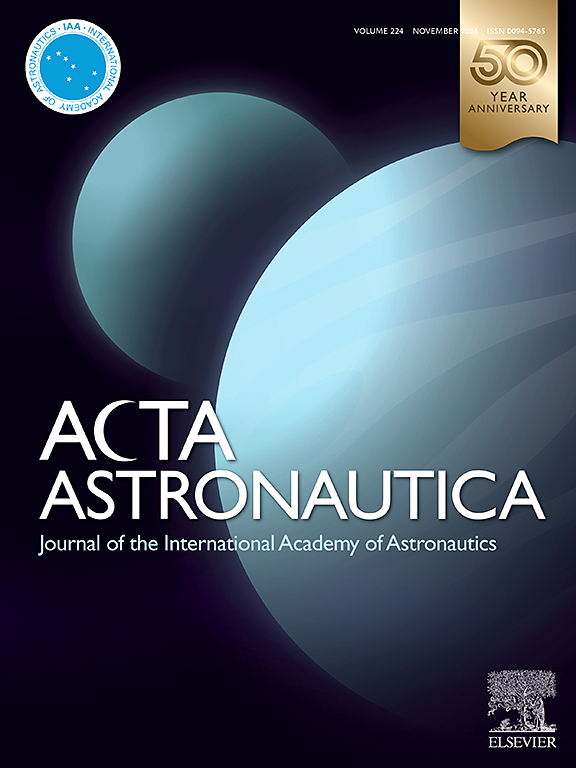Counting stars and costs: An empirical examination of space launch cost trend at NASA
IF 3.1
2区 物理与天体物理
Q1 ENGINEERING, AEROSPACE
引用次数: 0
Abstract
A cornerstone of the United States space policy is fostering a robust commercial space industry to leverage the benefits of competitive market forces. Space sector stakeholders generally applaud the implementation of this policy decision in the launch industry, citing significant decreases in space launch costs in the last decade. The effectiveness of this policy can be examined through two lenses: the initial cost reduction from the transition of the domain to the private sector and the continuous cost reduction due to the forces of competitive market until reaching an equilibrium. Empirical studies have verified the first effect by comparing commercial launch service costs to those of the Shuttle program. However, the current literature faces data limitations for robust investigations of the second effect. Proprietary factors restrict access to actual launch cost data, necessitating reliance on the prices advertised by the service providers. This study addresses this knowledge gap with an empirical examination using actual launch costs incurred by the National Aeronautics and Space Administration (NASA). The statistical models in this paper reveal NASA's launch cost trends for non-recurring missions using private sector launch services, offering a more precise insight into the current dynamics of the launch market. The study's findings contribute to economic transparency, strengthening the foundation for enhanced market competition. More importantly, the results of the study open the opportunity to reassess the relevant policies to improve the ways government agencies engage with the private sector as the exploration of the unknown expands.
数星星,算成本:对美国国家航空航天局航天发射成本趋势的实证研究
美国空间政策的一个基石是培育一个强大的商业航天工业,以充分利用市场竞争力量的益处。航天领域的利益攸关方普遍赞扬在发射行业实施这一政策决定,并列举了过去十年中航天发射成本的显著下降。这项政策的有效性可以从两个方面来考察:一是该领域向私营部门过渡后的初始成本降低,二是市场竞争力量导致的成本持续降低,直至达到平衡。实证研究通过将商业发射服务成本与航天飞机计划的成本进行比较,验证了第一种效应。然而,目前的文献在对第二种效应进行有力调查时面临数据限制。专有因素限制了实际发射成本数据的获取,因此必须依赖服务提供商的广告价格。本研究利用美国国家航空航天局(NASA)的实际发射成本进行实证研究,弥补了这一知识空白。本文中的统计模型揭示了美国国家航空航天局利用私营部门发射服务执行非经常性任务的发射成本趋势,从而更准确地洞察当前发射市场的动态。研究结果有助于提高经济透明度,加强市场竞争的基础。更重要的是,研究结果为重新评估相关政策提供了机会,以便在探索未知世界的过程中改进政府机构与私营部门的合作方式。
本文章由计算机程序翻译,如有差异,请以英文原文为准。
求助全文
约1分钟内获得全文
求助全文
来源期刊

Acta Astronautica
工程技术-工程:宇航
CiteScore
7.20
自引率
22.90%
发文量
599
审稿时长
53 days
期刊介绍:
Acta Astronautica is sponsored by the International Academy of Astronautics. Content is based on original contributions in all fields of basic, engineering, life and social space sciences and of space technology related to:
The peaceful scientific exploration of space,
Its exploitation for human welfare and progress,
Conception, design, development and operation of space-borne and Earth-based systems,
In addition to regular issues, the journal publishes selected proceedings of the annual International Astronautical Congress (IAC), transactions of the IAA and special issues on topics of current interest, such as microgravity, space station technology, geostationary orbits, and space economics. Other subject areas include satellite technology, space transportation and communications, space energy, power and propulsion, astrodynamics, extraterrestrial intelligence and Earth observations.
 求助内容:
求助内容: 应助结果提醒方式:
应助结果提醒方式:


